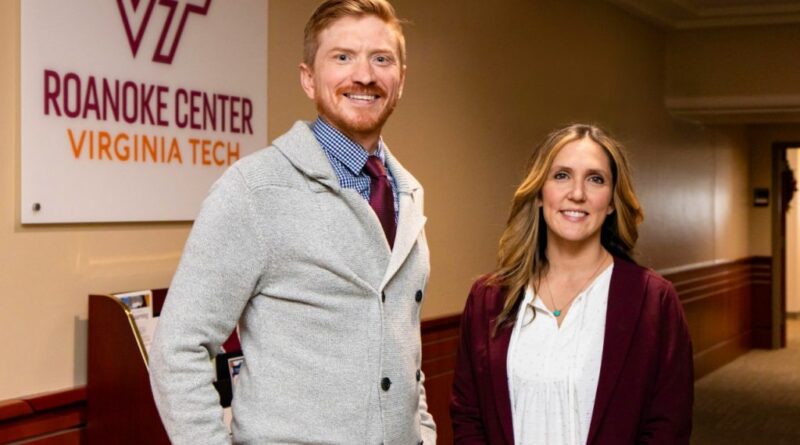Community partnerships help Roanoke counselor education program close mental health care gaps
Professor Matthew Fullen knows that meeting clients where they are is the key to effective mental health care. It’s also important, he said, when training the next generation of mental health counselors.
That’s why the School of Education established its master’s in counselor education program at Virginia Tech Roanoke, a strategy that Fullen, who heads the program, says has varied student experiences by being allow working with multiple clients. In turn, community partners like the Rescue Mission of Roanoke and Roanoke City Public Schools say the program’s students have strengthened mental health teams serving the Roanoke Valley.
These interactions give students a “hard dose of reality,” Fullen said. Whether working with at-risk youth, providing support to underserved communities, or addressing mental health needs in local schools, graduate students serve real people who need real support for different issues.
Students say such experiential opportunities help build not only technical skills but also the ability to recognize the complexities and limitations of the human experience.
“The primary focus of Virginia Tech’s counselor education program is to foster an environment that helps students tap into the blue areas of life, so they can help their clients do the same,” said Bethany Lackey, who found her master’s degree in 2013. her doctorate in 2020 before founding the Roanoke Refugee Partnership and A Tree Planted Collective. “Each client comes with their own unique stories, cultures, feelings, needs, identities and strengths. That’s critical to mentor development and provides an experience you can’t replicate.”
Social networking is built in
The counselor education program offers two master’s degree tracks in Roanoke – one in mental health counseling and the other in school counseling. The Roanoke Center’s flexible space, located on the seventh floor of the Roanoke Center for Higher Education, allows the program to actively support hands-on learning.
That includes a mental health clinic built specifically for counselors in training. That’s where students get their feet wet serving clients from organizations like the Rescue Mission of Roanoke, which supports the homeless, and the Roanoke Diversity Center, which supports the area’s LGBTQ+ community.
“The counselor education program not only prepares excellent counselors for our schools and our community, but the partnerships made with the community also help raise the well-being of the residents of this area and speak with the depth of work of the Roanoke Center,” said Scott Weimer, who leads the Roanoke Center’s Outreach and International Affairs division.
By offering counseling services to the community, the clinic gives students the opportunity to work directly with a variety of clients, said Joanna Collins, assistant professor of practice in the School of Education and director of the clinic. “This program not only improves student development but also strengthens connections with the community as they address real mental health needs.”
Clinical treatment rooms include cameras that, with client approval, allow faculty and medical students to view sessions and provide guidance and feedback to counselors during the course. Another room with colorful children’s toys and furniture is used for therapy sessions with children.
Collins said students gain experience in key areas such as client assessment, treatment planning, and evidence-based interventions under the supervision of licensed professionals.
“This hands-on experience is the foundation of counselor training, allowing students to develop clinical skills, ethical decision-making, and cultural sensitivity — fundamentals that prepare them to be effective, compassionate counselors.” when they graduate,” he said.
The community also benefits, as students help strengthen access to quality mental health care in the city and surrounding area not only in the clinic but also through the 700 required service hours of professional experience. study in local mental health organizations and schools.
“The community still likes to give advice. There is a lot of knowledge about mental health and a lot of people seeking services. In many cases, this is how Virginia Tech is able to provide support and help make services more accessible,” Fullen said.
#Community #partnerships #Roanoke #counselor #education #program #close #mental #health #care #gaps
